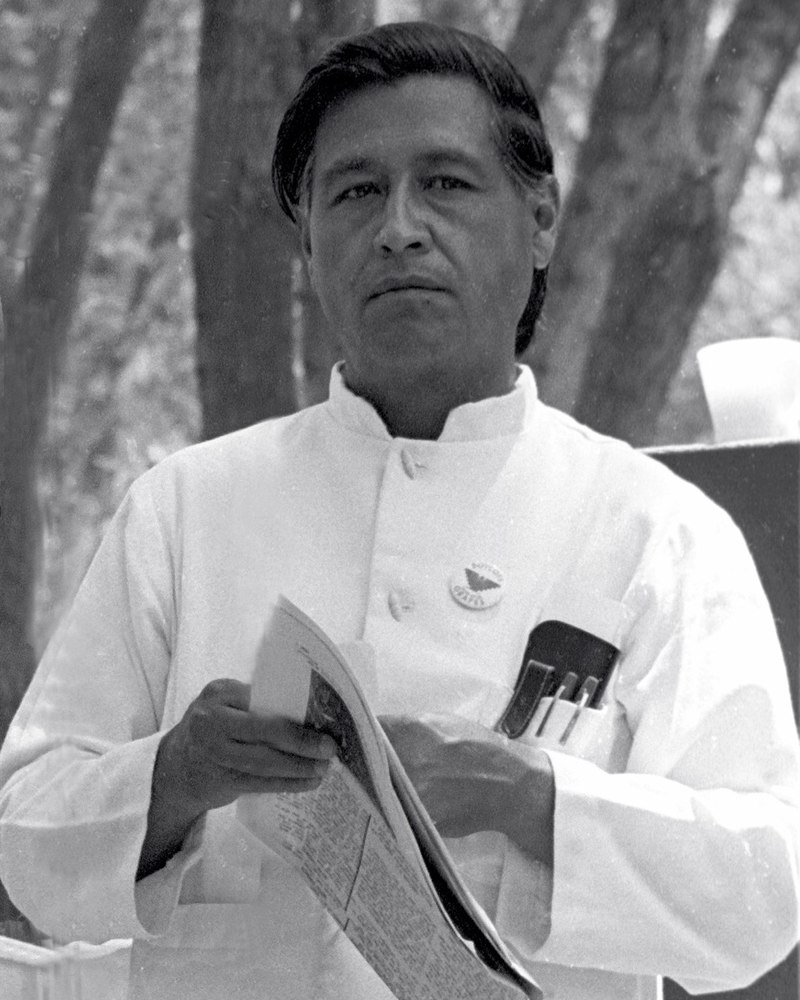
Cesar Chavez
Cesar Chavez (March 31, 1927 - April 23, 1993) was a Mexican-American labor leader who used non-violent methods to fight for the rights of migrant farm workers in the southwestern USA. Migrant farm workers are people who do farm labor, moving from farm to farm and from town to town as their work is needed - it is difficult work that pays very little and can be dangerous due to the use of pesticides (pesticides are chemicals that kill bugs and can make people sick).
Chavez founded a union, a group that works to help increase the wages and improve the working conditions and safety of farm workers. He also organized strikes (when workers refuse to work until improved working conditions and salary demands are met) and nation-wide boycotts of agricultural products in order to help workers (a boycott is a protest in which the public is asked not to buy certain products). Chavez went on many hunger strikes, refusing to eat until violence against strikers ended and until legislators (law makers) voted to make laws improving the lives of farm workers. He was also jailed many times during his fight against terrible migrant worker conditions.
Chavez was born in San Luis, Arizona. When Cesar was 10 years old, his parents became migrant farm workers after losing their family farm. As a youth, Cesar worked part-time in the farm fields with his family in Arizona and in California as they moved from farm to farm, harvesting the fields. Cesar served in the US Navy during World War 2. When Cesar Chavez returned from the war, he labored as a farm worker in California. Chavez married Helen Fabela in 1948; they eventually had 8 children.
Chavez and his wife taught Mexican immigrants to read and organized voting registration drives for new US citizens. He joined an organization that worked for the rights of farm workers. In 1962, Chavez started his own union (a workers' rights group), the National Farm Workers Association (NFWA). The name of the union was changed to the United Farm Workers (the UFW) in 1974. The union organized many farm worker strikes, resulting in many bitter and violent fights between the grape growers and the farm workers; Chavez and many union people were jailed in the struggle. Some agreements were made between the farm workers union and the growers, but in order to force growers to further improve farm worker conditions, Chavez organized a nation-wide lettuce boycott.
In 1968, Chavez organized a five-year "grape boycott" a movement that urged people to stop buying California grapes until farm workers had contracts insuring better pay and safer working conditions.
After a lifetime of valiantly fighting for social justice, Chavez died of natural causes at the age of 66 (in 1993). To this day, Chavez's children and grandchildren continue his fight for social justice.